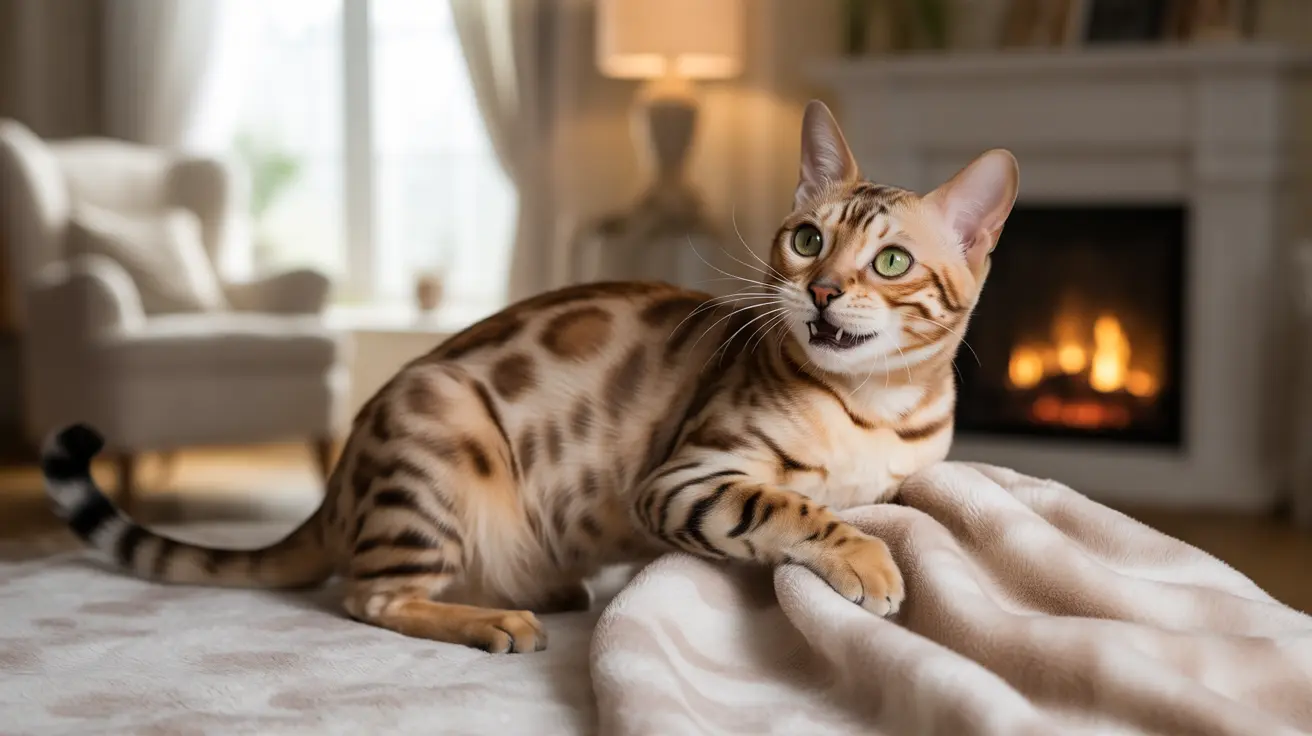As pet owners and veterinary professionals, it's important to understand that cats, like many mammals, can engage in self-pleasuring behaviors. While this topic might feel awkward to discuss, recognizing normal versus concerning behaviors is crucial for your cat's health and well-being.
In this comprehensive guide, we'll explore the science behind these natural behaviors, what's considered normal, when to be concerned, and how to address any problematic patterns. Understanding these behaviors can help you better care for your feline companion and know when veterinary intervention might be necessary.
Common Self-Pleasuring Behaviors in Cats
Cats may display various autoerotic behaviors, with intact males being the most likely to exhibit them. These behaviors typically include:
- Excessive genital licking or grooming
- Humping soft objects like blankets or toys
- Rubbing genitals against furniture or other surfaces
- Kneading combined with pelvic thrusting
While these behaviors can seem concerning to owners, they're often normal aspects of feline behavior, especially in younger or unaltered cats.
The Role of Hormones and Neutering
Testosterone plays a significant role in driving sexual behaviors in cats. Intact male cats are most likely to display these behaviors due to their higher hormone levels. This is one reason why veterinarians recommend spaying and neutering.
However, it's important to note that neutering may not completely eliminate these behaviors, especially if they've become learned habits. Cats neutered later in life may continue these behaviors even after the procedure.
When to Be Concerned
While occasional self-pleasuring behaviors are typically normal, certain signs warrant veterinary attention:
- Sudden onset or increased frequency
- Signs of pain or distress
- Skin irritation or inflammation
- Blood in urine or difficulty urinating
- Excessive vocalization during the behavior
- Compulsive behaviors that interfere with daily activities
Managing and Preventing Problematic Behaviors
If your cat's behaviors become concerning, consider these management strategies:
- Schedule a veterinary examination to rule out medical issues
- Provide environmental enrichment and interactive play
- Maintain a consistent daily routine
- Consider neutering if your cat is still intact
- Use positive reinforcement for alternative behaviors
- Never punish your cat for these natural behaviors
Professional Intervention and Treatment
When behavioral or medical concerns arise, your veterinarian may recommend:
- Complete physical examination
- Urinalysis and blood work
- Behavioral modification techniques
- Environmental modifications
- Medication in severe cases
- Consultation with a feline behavioral specialist
Frequently Asked Questions
Do cats really masturbate, and what behaviors indicate this?
Yes, cats do engage in self-pleasuring behaviors. Common indicators include excessive genital licking, humping objects, and rubbing genitals against surfaces. These behaviors are most common in intact males but can occur in any cat.
Why do some cats hump objects or lick their genitals excessively?
These behaviors can be driven by hormones (especially in intact cats), stress, learned habits, or medical issues. Sometimes, they may serve as self-soothing mechanisms or result from sexual frustration.
Will neutering my cat stop masturbation and other sexual behaviors?
Neutering often reduces these behaviors but may not eliminate them completely, especially if they've become learned habits. The procedure is most effective when performed before sexual maturity.
When should I be worried about my cat's masturbation or humping habits?
Be concerned if the behavior is sudden, excessive, causes injury, or is accompanied by signs of pain, urinary issues, or significant behavioral changes. These situations warrant immediate veterinary attention.
How can I manage or reduce my cat's compulsive genital licking or humping behavior?
Start with a veterinary check-up to rule out medical issues. Provide environmental enrichment, maintain routine, consider neutering if intact, and use positive reinforcement for alternative behaviors. Never punish these behaviors, as this can increase stress and anxiety.
Conclusion
While cat masturbation might be an uncomfortable topic for owners, understanding these behaviors is essential for proper pet care. Most cases are normal and resolve with appropriate management, but always consult your veterinarian if you notice concerning changes in your cat's behavior or health.






